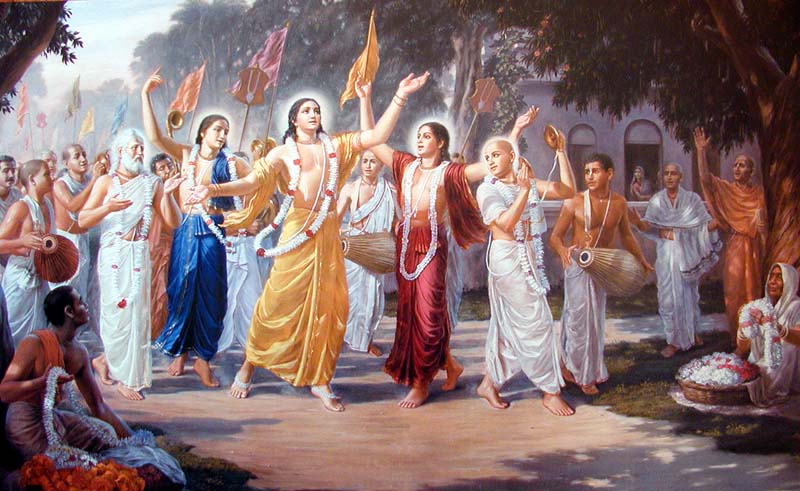Question : In one of Bhakti-vriksha [cell] edification material, I read the following line: “UNLESS YOU TAKE TO KRISHNA CONSCIOUSNESS, YOU CANNOT BE HAPPY.” Can you please let us know, what is sastric or sloka reference for this emphatic statement?
Answer by Romapada Swami:
This statement is just in accordance with the ultimate conclusion of all scriptures. For instance, Suta Gosvami makes a similar statement when questioned about the highest welfare for all of humanity: sa vai pumsam paro dharmo yato bhaktir adhoksaje / ahaituky apratihata yayatma suprasidati (SB 1.2.6) This verse says that only unmotivated, uninterrupted devotional service to the transcendent Lord can lead to complete self-satisfaction. Further he continues, “Everything else, if they do not lead one to this point of causeless devotion is simply a waste of time.” (SB 1.2.8)
This is also echoed by Krsna das Kaviraja Gosvami in Caitanya Caritamrta: bhukti mukti siddhi kami sakali ashanta, krishna bhakta niskama atha eva shanta: only an unalloyed devotee of Krishna is fully peaceful, everyone else, be they ordinary materialists, those seeking for mystic perfection or seeking liberation, is ashanta or unhappy. Krishna Himself declares in Bhagavad-gita that without sacrificing one’s work to Vishnu, no one can be peaceful or happy. (Bg 3.9, 4.31 etc)
This of course is not a dogmatic statement, however, and should not be taken in that sense. The basis of this statement is that the original, natural position of a living entity is in loving servitorship to the Supreme Personality of Godhead, Krishna; under any designation other than that, one is in an unnatural position just like a fish out of water and cannot therefore be truly happy. [Note that here we are defining HAPPINESS in an absolute sense, not in the sense of sense pleasures, or the diminution of distress.]







